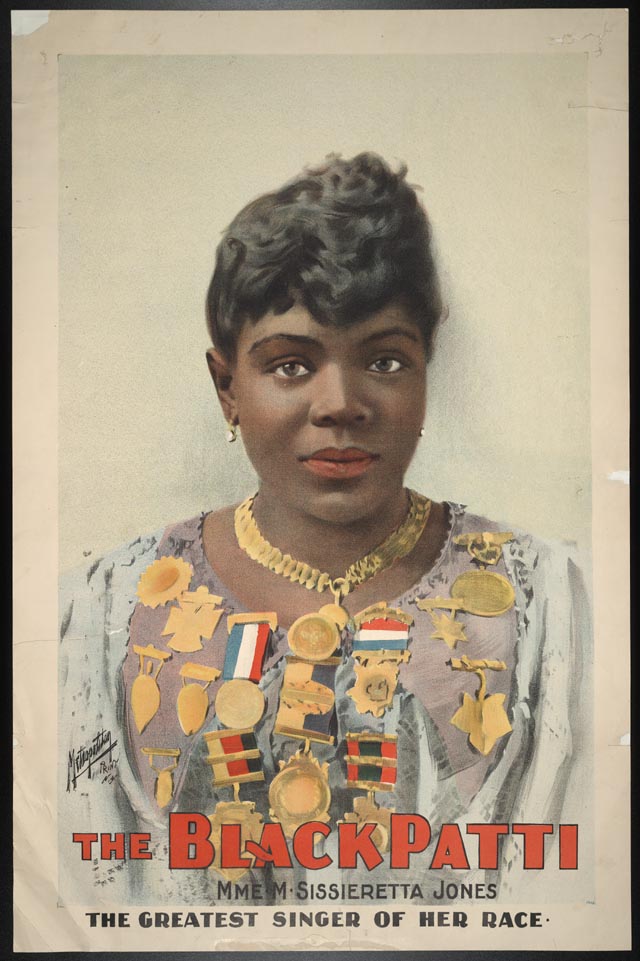
“The flowers absorb the sunshine because it is their nature. I give out melody because God filled my soul with it.”
– Matilda Sissieretta Joyner Jones.
Sisieretta Jones, one of the most influential black vocalists of the 1800s, toured through Germany and Europe achieving great fame and challenging racial stereotypes with her “angelic” singing voice. Matilda Sissieretta Joyner Jones was born on January 5, 1869 in Portsmouth, Virginia, where her father was a minister, and her mother a singer in the church choir.
Jones began singing at an early age at her father’s Pond Street Baptist Church. Despite her early marriage at age 14, she began formal music training at the Providence Academy of Music and, at age 18, she began attending the New England Conservatory in Boston, where she studied with Flora Batson, the lead singer of the Bergen Star Company. Throughout her education, Jones performed locally, and over the following decade, her fame brought her to various locations across the world. She held three performances at the White House for three different presidents and toured across South America and Europe, gaining recognition from global leaders for the uniqueness in her voice. A famous image of her shows her wearing the large collection of medals from these international admirers that she often wore during her performances.
Jones’s European career included a nine-month tour across the continent and featured special performances for such royalty as the Prince of Wales and the Emperor of Germany, Wilhelm II, who presented her with a diamond cross in appreciation for her voice.
Jones was the first black performer to appear at Carnegie Concert Hall, one of her most famous performances and important legacies. While she was one of the best paid black performers in her day, her success was clouded by the racial discrimination she faced throughout her musical career, as when she was denied lead roles due to her skin color.
In 1896, frustrated with being the constant target of racial discrimination, Jones brought some 40 black singers, comedians, acrobats, and performers together to create the Black Patti Troubadours. This famous group often performed blackface minstrel and “coon” songs at the beginning of their shows, followed by Jones and her renowned genre of opera singing. The group toured around the world for almost twenty years before disbanding in 1914.
– Danielle Barnette (University of Missouri)